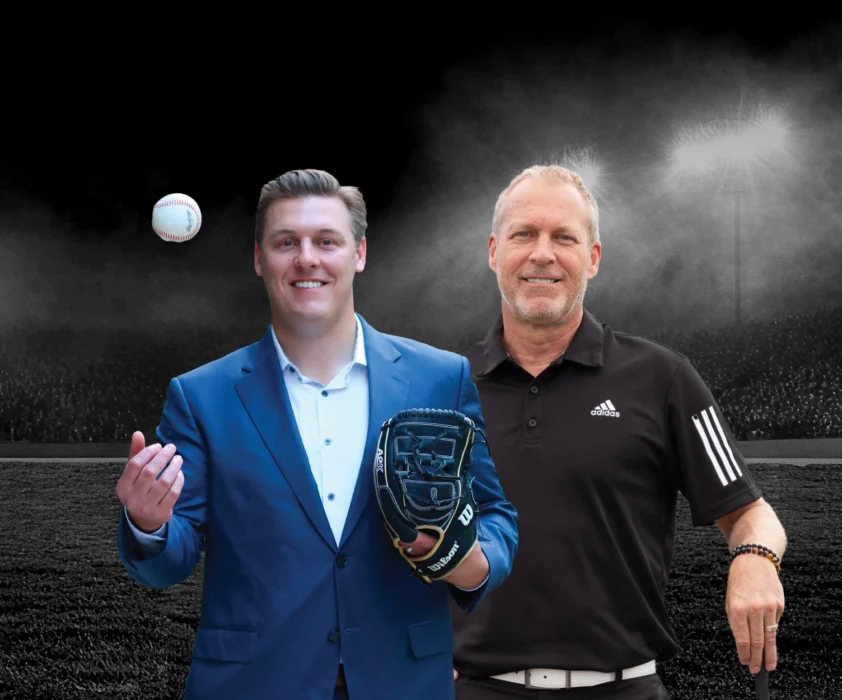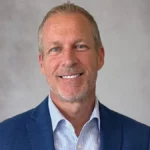
What Two Stream Leaders Learned from the World of Professional Sports.
Improving your golf swing or mastering your pitch in baseball may initially appear straightforward—just grab a bucket of balls and practice until you achieve your desired results. However, the journey to excelling in collegiate and professional sports demands far more than mere physical prowess. Athletes must brace themselves for the mental battles that inevitably arise, acknowledging the likelihood of encountering setbacks and falling short of their goals.
Consider the striking success rates in both baseball and golf. In the major leagues, even the most exceptional hitters only achieve a batting average of .300, meaning they successfully hit the ball only 30 percent of the time. Similarly, in professional golf, victory is elusive even for the most skilled players, who often find themselves losing more frequently than winning tournaments. The pivotal question confronting these athletes is: How do you sustain your motivation and concentration in the face of repeated failure?
Former professional athletes Heath Donica and Barry Fabyan, now integral members of the Stream Team, offer invaluable insights into overcoming adversity and achieving success both on and off the field. Their journeys epitomize the importance of hard work, mentorship, and unwavering self-belief, underscoring the transformative power of dedication and resilience in realizing one’s potential, whether on the field or in the dynamic world of commercial real estate (CRE).
Don’t stop believing
Heath Donica, a talented pitcher drafted by the Oakland A’s, encountered significant challenges throughout his sports career, particularly with his elbow. From his days at Sam Houston State University to his tenure in the A’s franchise, he battled a persistent injury—a consequence, he believes, of pushing himself too hard.
At the culmination of his first season with the A’s, Heath underwent Tommy John surgery, marking the beginning of a grueling year-and-a-half-long recovery process that ultimately prompted his decision to step away from baseball.
Reflecting on his journey, Heath acknowledges the paradoxical nature of his experience: “It’s a Catch-22 because I would have never reached that level without that relentless drive, yet it also led to injury issues, probably from overexertion.”
Despite the setbacks, Heath’s perseverance earned him a memorable moment in Sam Houston State University’s history. During the pivotal 2017 Super Regional at Florida State University, amidst multiple rain delays and a shaky start, SHSU’s legendary coach, Matt Deggs, demonstrated unwavering faith in him.
“He came out to the mound, looked me in my eyes and said, ‘Hey man, if our ship is sinking today, it would be my honor to go down with you. There’s no one else I’d rather go down with than you,’” recalls Heath.
With the season hanging in the balance and the team striving to achieve unprecedented success, Deggs’ words resonated deeply with Heath. “For him to say that in a moment of that magnitude—just the level of respect he had for me—it was very emotional,” he shares. Deggs’ belief in Heath and the team was palpable, not only in the press conference following Sam Houston’s loss but also years later, as Heath embarked on a new chapter in commercial real estate with Stream.
The YouTube tie tutorial
After Heath retired from baseball, he and his wife Ashley faced tough times. With their first child on the way, Heath took up a job restocking pipes in a warehouse while they lived in a trailer in the Houston area.
In a stroke of coincidence, Heath learned about commercial real estate as a potential career path through a friend’s relative. Armed with a list of former athletes in the industry, he utilized his breaks at the warehouse to reach out to contacts on the list. If an interview or meeting arose, he seized the opportunity, often attending same-day appointments equipped with a suit he kept in his car.
“I would go into the locker room where I worked,” recalls Heath. “I would shower, fix my hair, put on the suit, and watch YouTube videos on how to tie a tie.”
One such meeting, approximately four and a half years ago, was with Justin Robinson, a member of Stream’s industrial leasing and development team who hired Heath to join their growing team. Shortly thereafter, while working alone on a holiday, Heath found himself in a pivotal moment when he was the sole representative available to pitch a potential client he had been prospecting for over a year.
Drawing from the confidence he cultivated during his playing years, Heath delivered the pitch solo and was promptly hired on the spot. Overjoyed, he immediately phoned his wife Ashley, who was now expecting their second child to share the exhilarating news.
“It turned into a 75,000-square-foot, 10-year lease, which was a big career change for me at the time,” recounts Heath. “That’s as close as I’ve ever been to the feelings that I had on the baseball field.”
Cutting expectations down to size
Barry Fabyan, who enjoyed a seven-year tenure as a professional golfer playing all over the world, also found success in commercial real estate.
Hailing from Columbus, Ohio, Barry demonstrated exceptional talent in golf from an early age. A two-time Ohio State high school champion (both individual and team) and the only player to win the Ohio Juniors 15-Under, the Ohio Juniors, and the Ohio Amateur championships, he amassed over 50 victories in junior and state tournaments. His prowess on the greens continued to shine as he became a three-time All-American golfer at Wake Forest University, contributing to the team’s national championship win in 1986, its runner-up finish in 1987, and finishing second in the NCAA tournament as an individual.
He finished Wake Forest as the school’s Scholar Athlete of the Year in 1989 and was a three-time All-ACC selection. While competing professionally on what was then the Nike Tour in the U.S., and on tours in Australia, South Africa, and Canada, Barry had numerous wins and over 40 Top-10 finishes, including two starts in PGA Tour events. His favorite memory as a pro was finishing third at the Nike Dominion Open, shooting rounds of 72-68-69-63 with his dad caddying. In many ways, he says this was emblematic of his professional career. “While it was great to play well with my dad out there with me, I came up just a little short of winning, which would have catapulted my career.”
Barry realized that true talent extended beyond titles and trophies. “We all admire somebody with a great swing who can hit the ball a long way,” he reflects. “But come crunch time, true talent is between the ears.”
Barry describes himself as a left-brained, analytical guy so success on the golf course hinged on mastering the art of visualization. “When the moments got bigger, my tendency was to think and not visualize,” he notes. Equally crucial to his success was the ability to find joy in the game. “The more you visualize, the more freed up and relaxed the muscles are, and that is a helluva lot more fun,” Barry emphasizes.
Finding the right mentor
Barry continued to pursue his passion for golf until he was 29, a pivotal moment coinciding with the birth of his first child. Feeling ready to move on from the game, Barry fortuitously crossed paths with a local developer, HC “Smoky” Bissell, who was spearheading a significant project in Charlotte, North Carolina.
“I happened to get an interview, and we hit it off,” Barry recalls. “I transitioned quickly, and he was at the time building a golf course, and I told him as long as you keep me a long way away from that golf course, I’ll come join you.”
The collaboration yielded impressive results, with the development and leasing of over four million square feet of office space. Barry credits Smoky as a pivotal mentor whose insights and expertise shaped his career trajectory. “He developed the best suburban office park between D.C. and Atlanta and won international awards,” Barry reflects. “He was just a great mentor for me to learn the business and to see what a great landlord looked like. I’ve been forever indebted to him.”
Surprisingly, Barry’s hiatus from golf didn’t hinder his skills; instead, it enhanced them.
After four years away from the professional circuit, he returned to the sport purely for enjoyment, devoid of any expectations. He has since won the Cardinal Amateur (17 years after winning it the first time) and qualified for the U.S. Amateur and U.S. Mid- Amateur Championships. Additionally, Barry qualified for the 2024 U.S. Senior Amateur Championship. “After I quit professionally,” Barry shares, “it was amazing how good I was without nearly the same preparation; how much better I was mentally when I gave myself a little bit of a break.”
With deals often finalized on the golf course, Barry jokes that these days, he’s more than happy to let the client win.
Drawing parallels between the challenges of professional sports and the competitive CRE industry, the experiences of former pro athletes Heath Donica and Barry Fabyan illuminate valuable insights. In both arenas, success hinges on resilience, adaptability, and an unwavering commitment to improvement. Just as athletes must navigate the mental battles of challenging setbacks, CRE professionals face the constant pressures of market fluctuations and deal complexities.
The lessons learned from the athletic field—perseverance, discipline, and the ability to bounce back from failure—directly apply to the demands of the CRE landscape. With a shared ethos of hard work, mentorship, and self-belief, Heath and Barry bring a unique perspective to their roles at Stream, where they continue to excel in helping clients achieve their goals with determination and tenacity.

